Changing Room
Maya Aruch / Gal Melnick
05.09.2019 - 12.09.2019
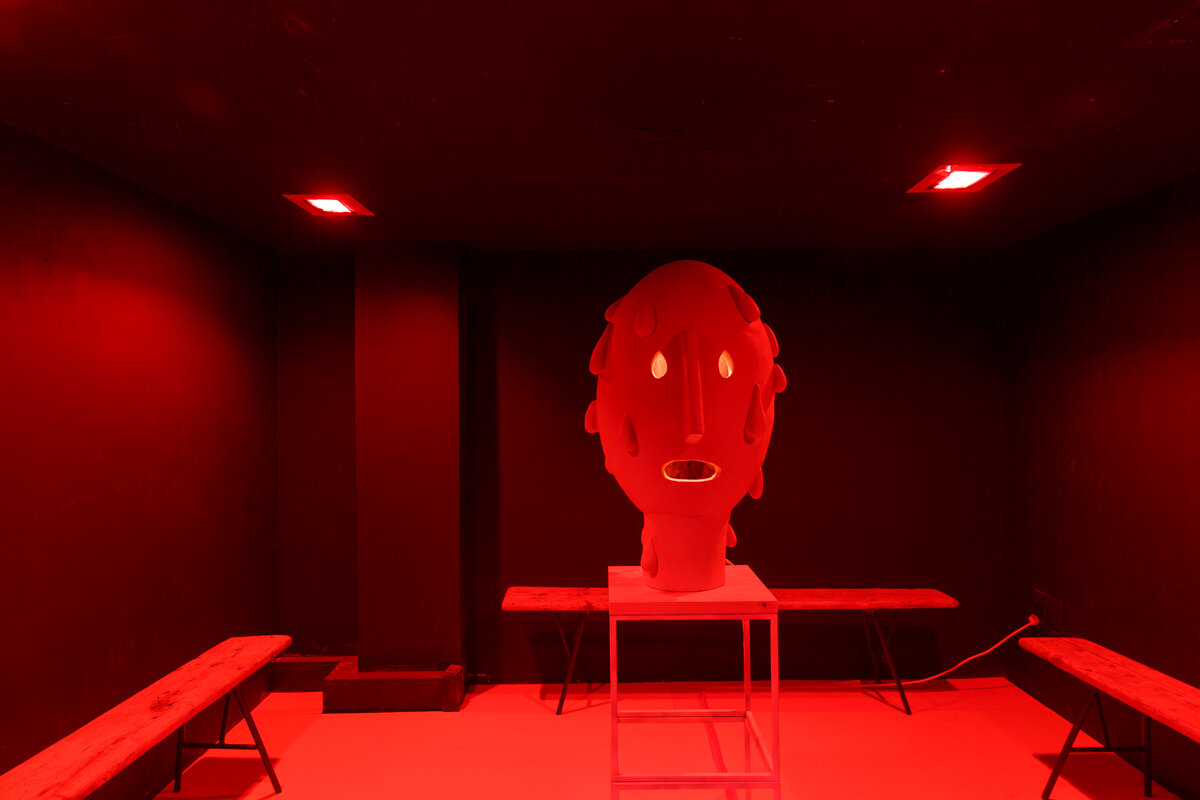
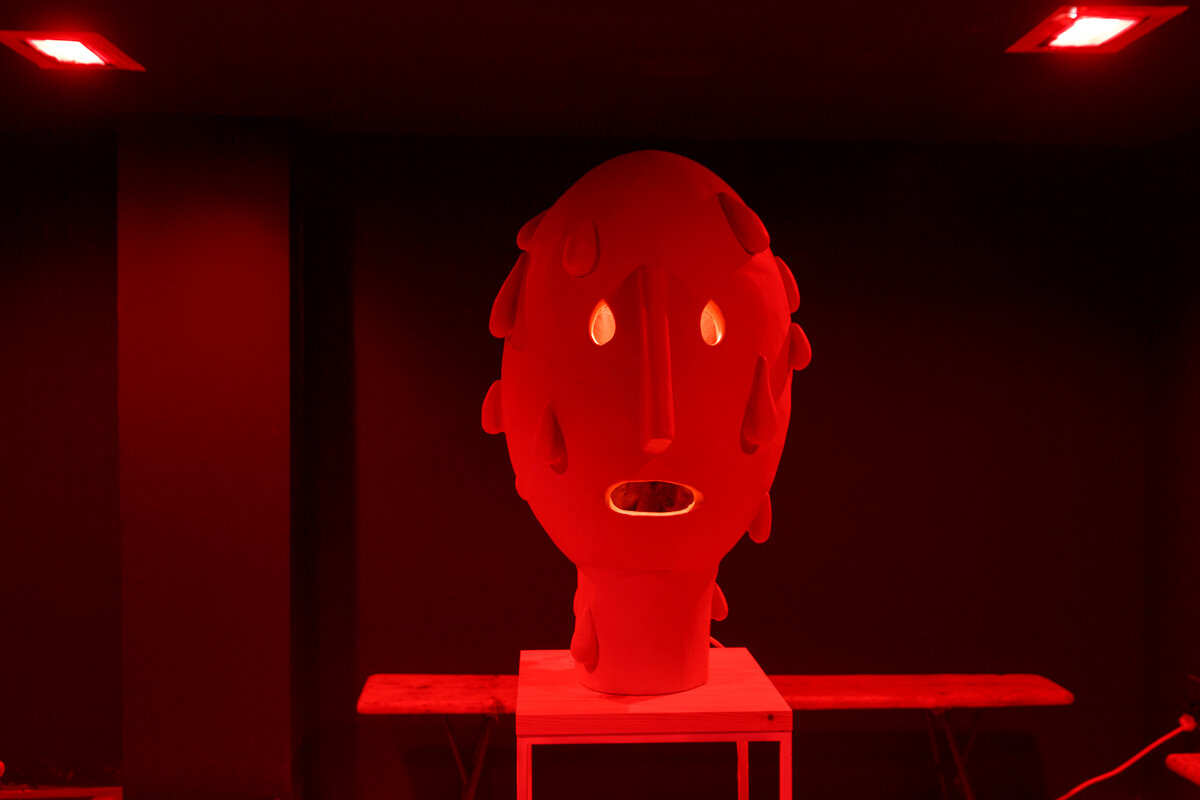
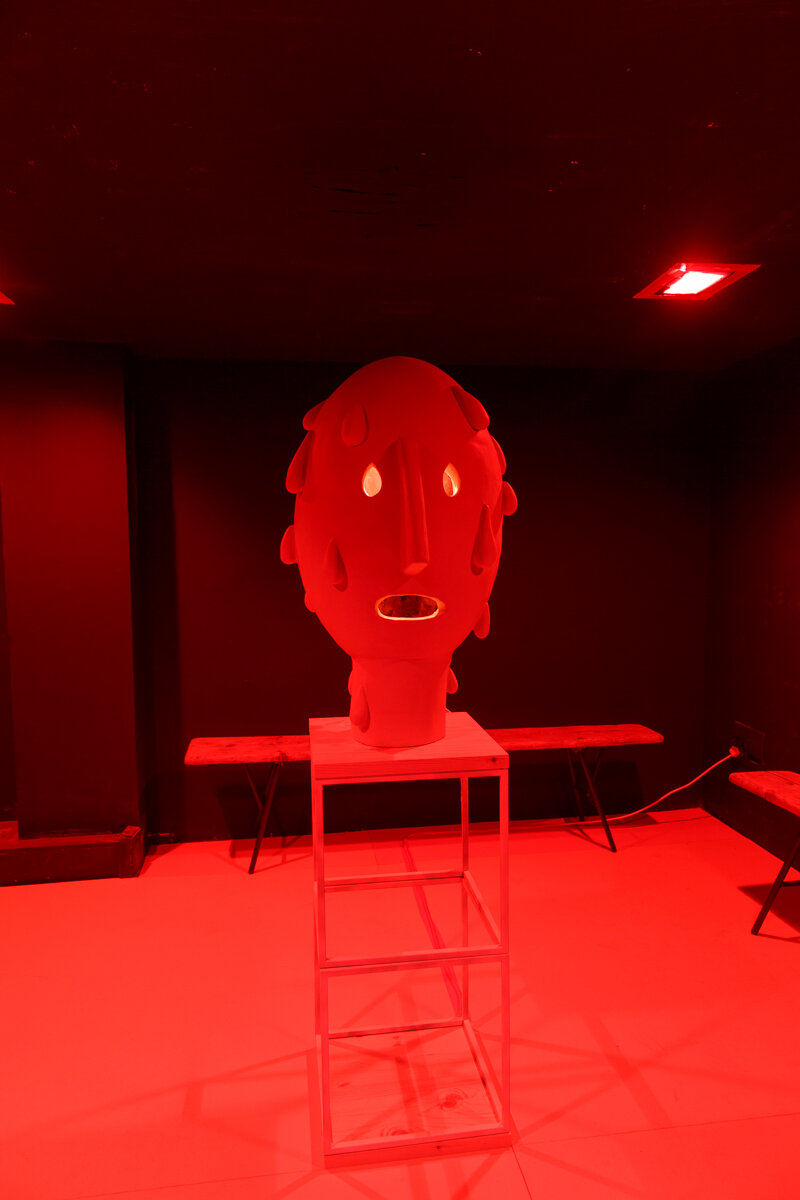

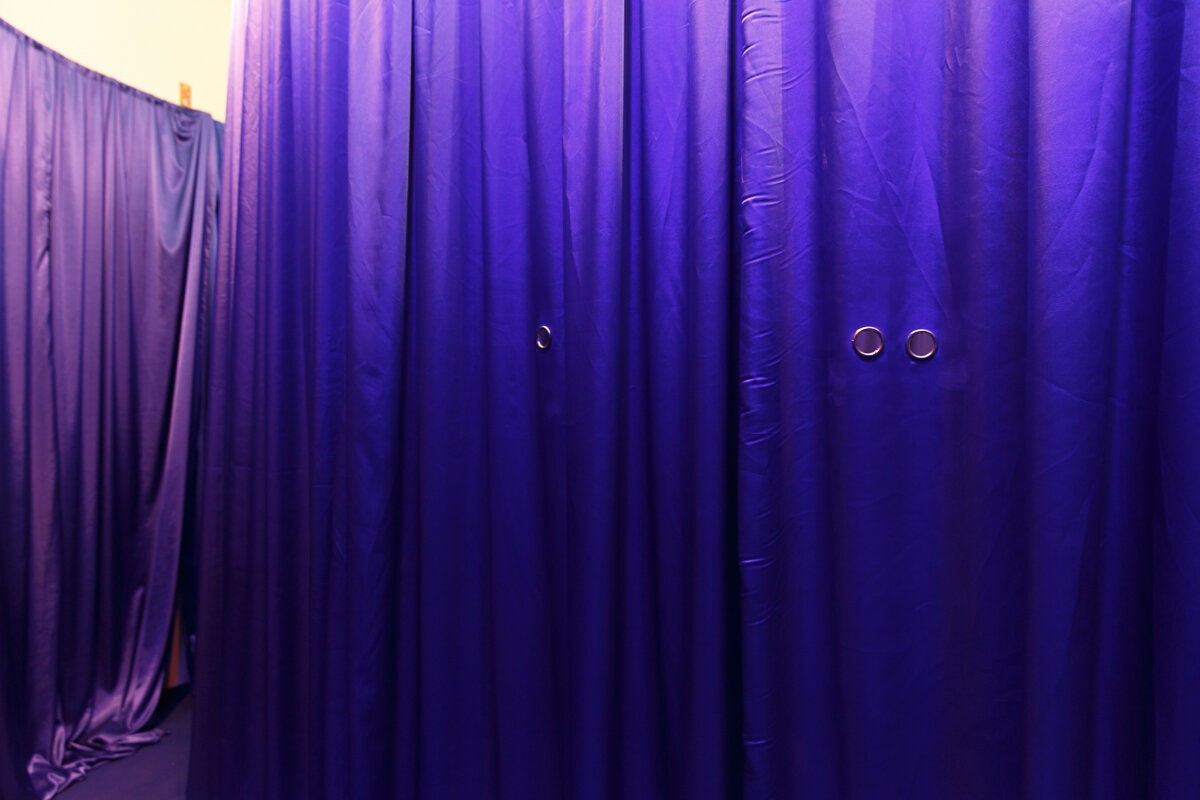
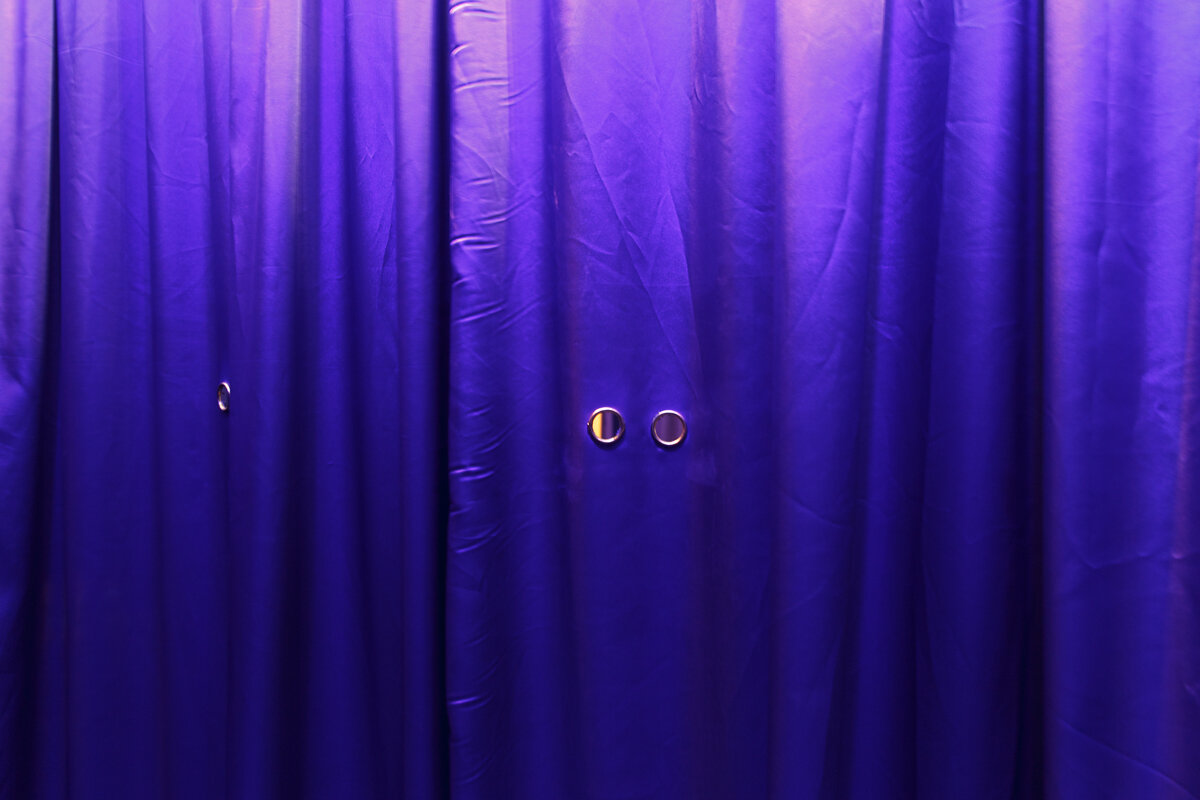
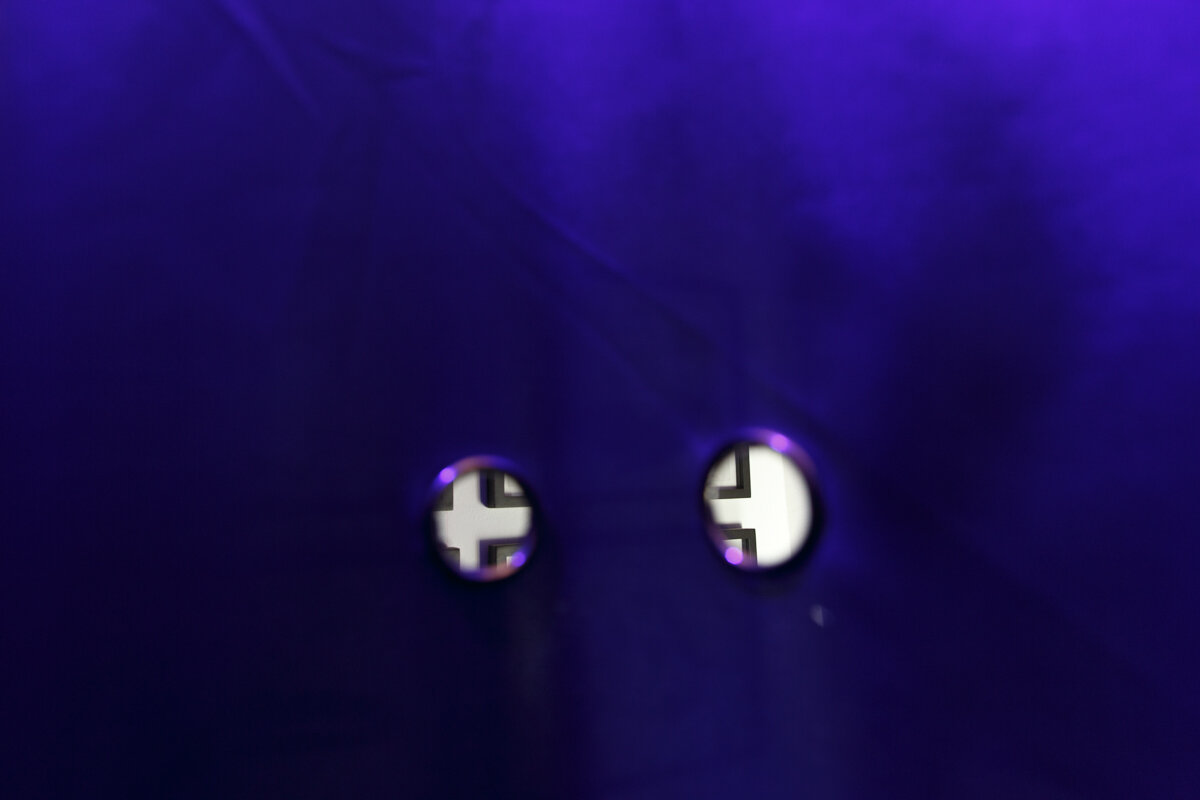
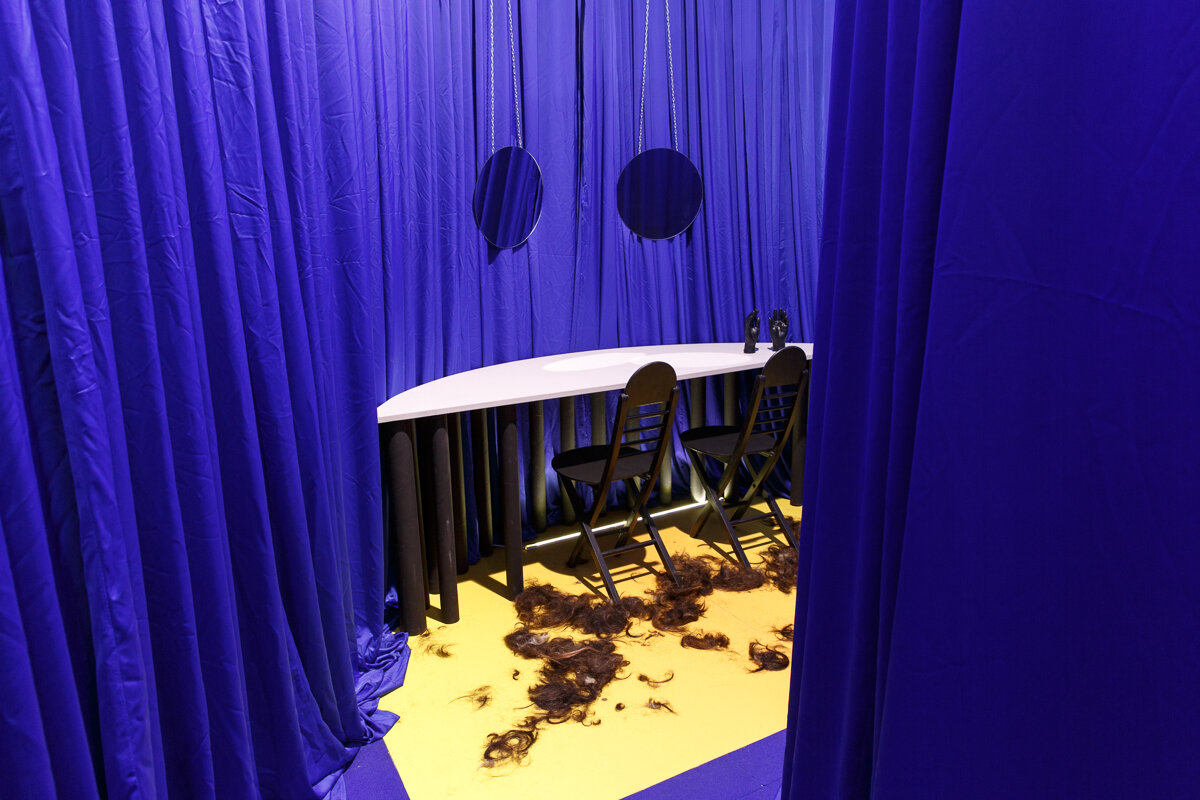
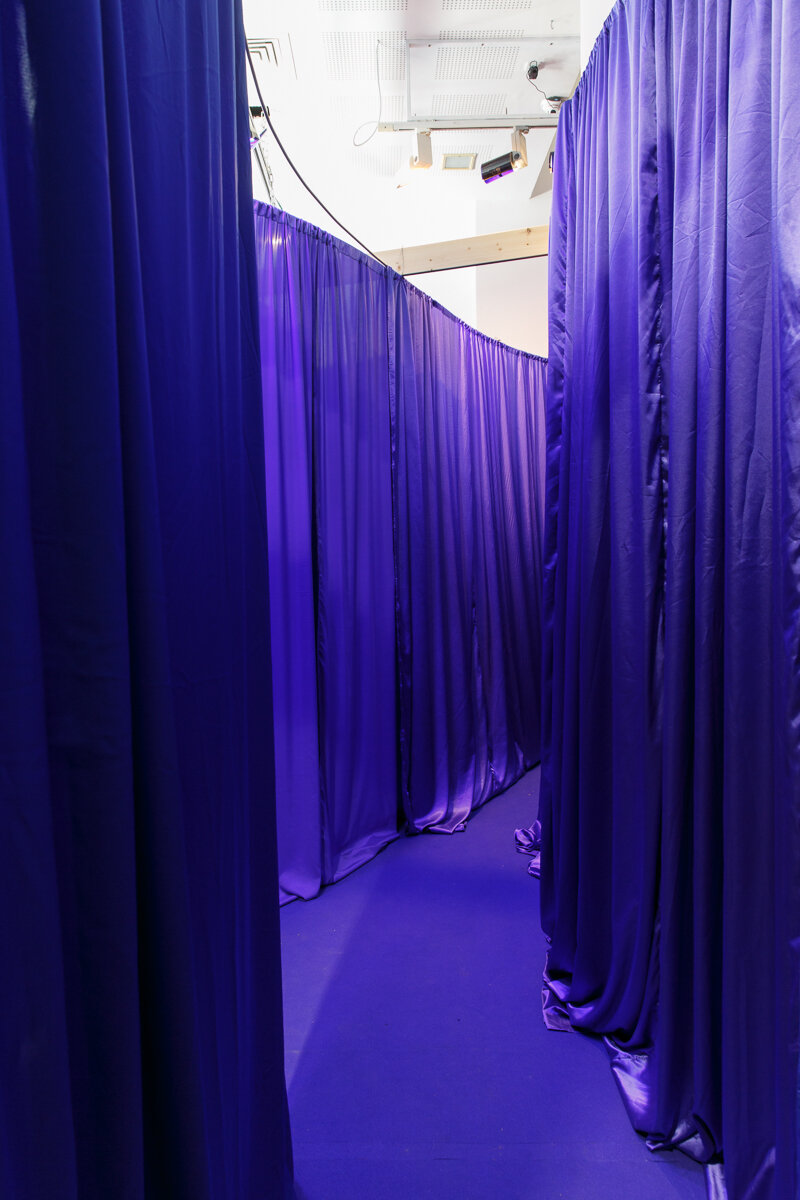
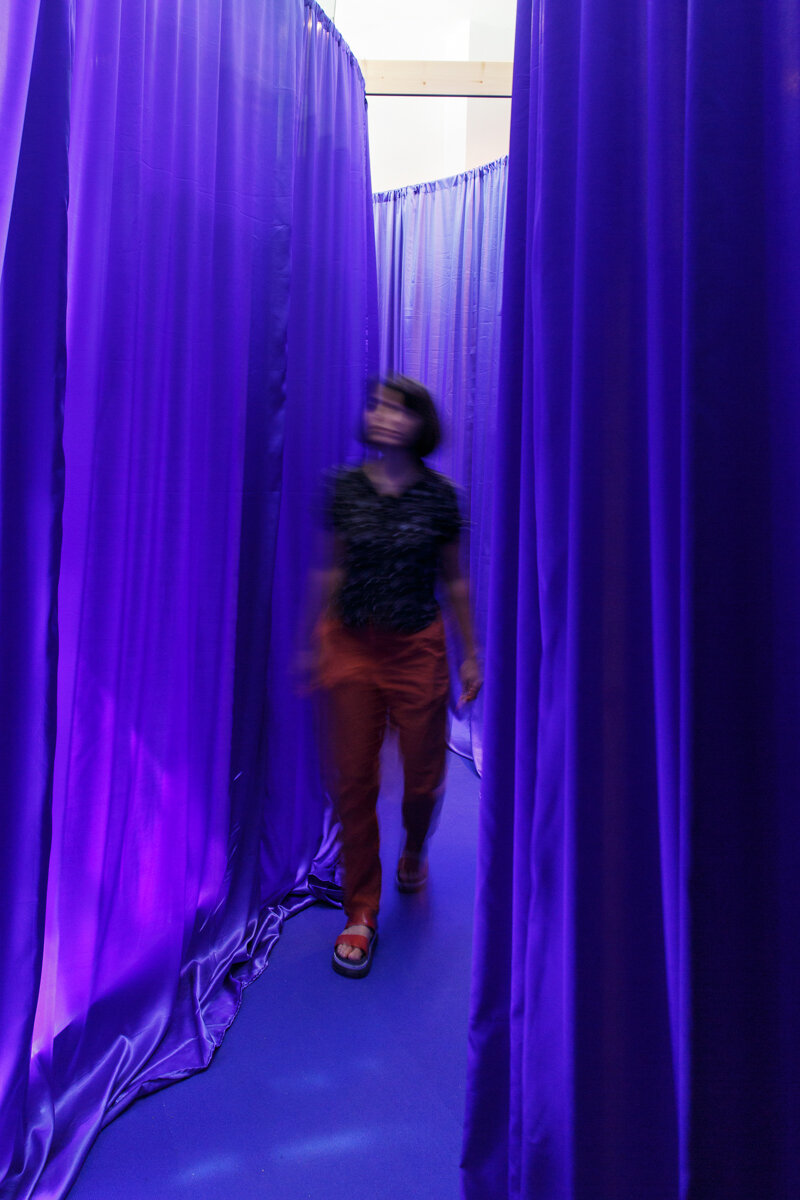
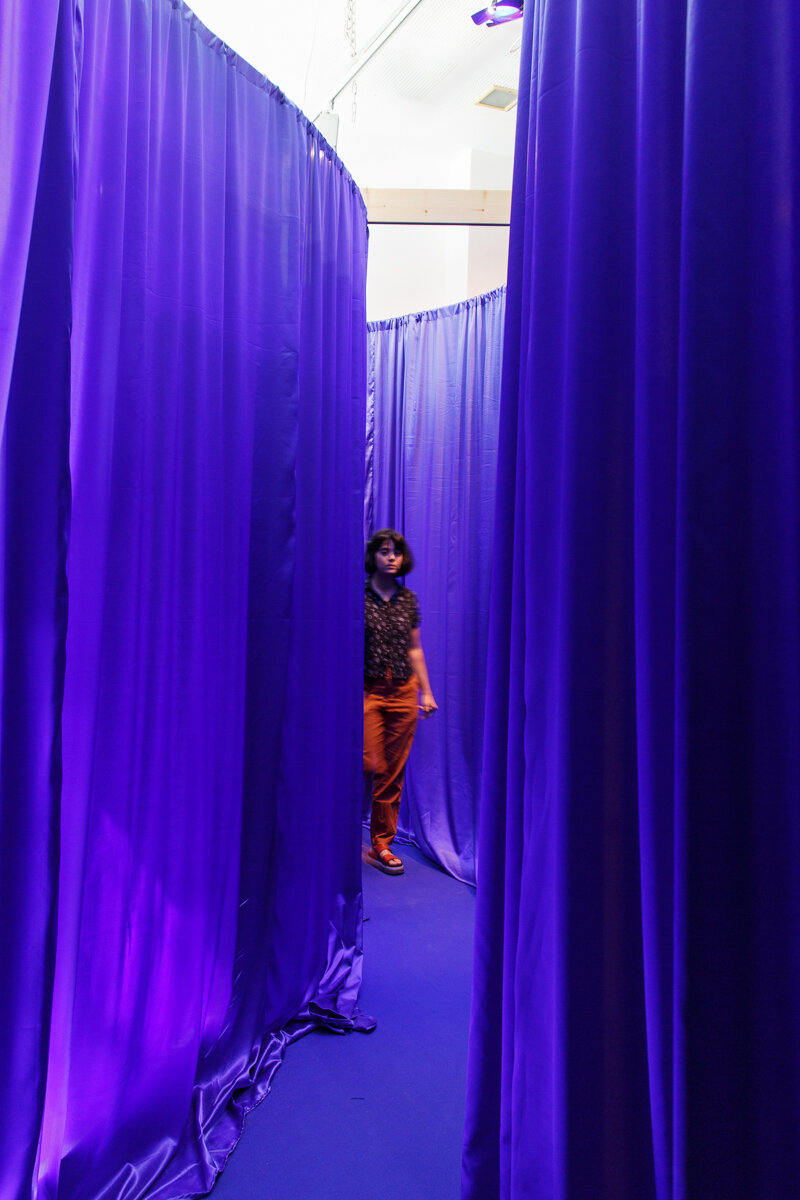
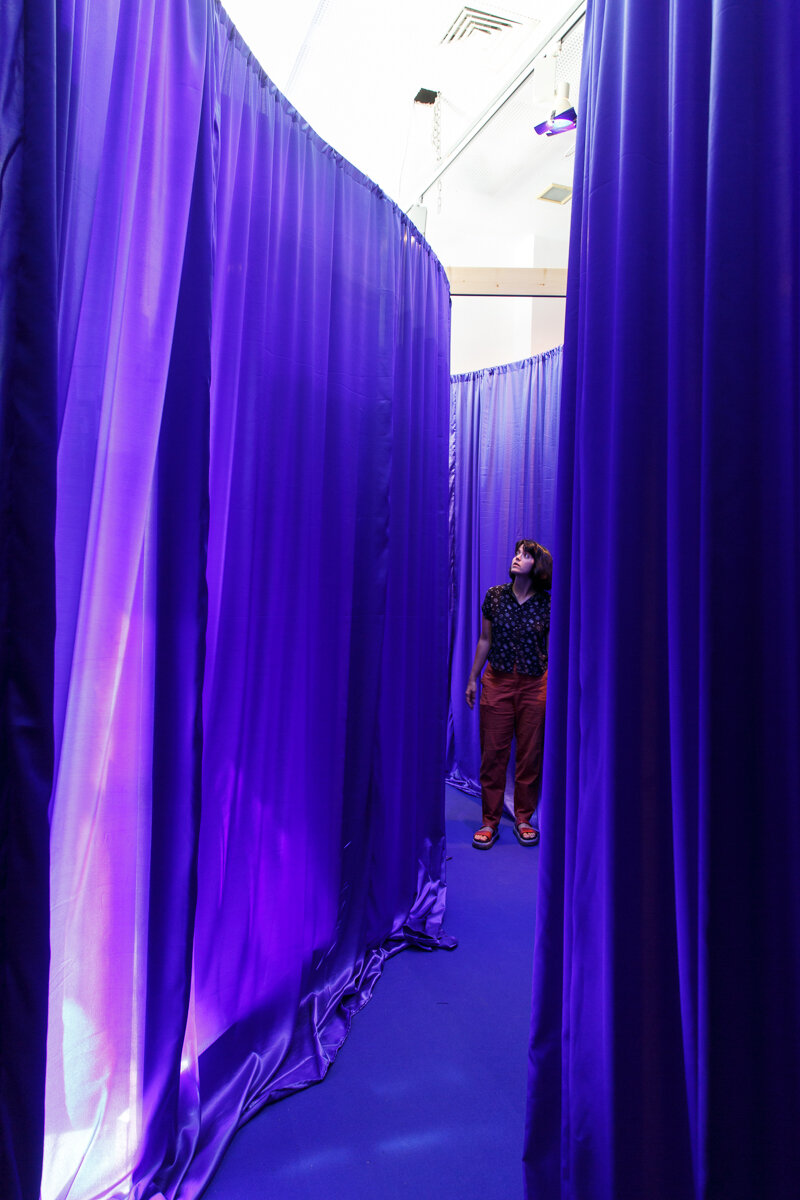
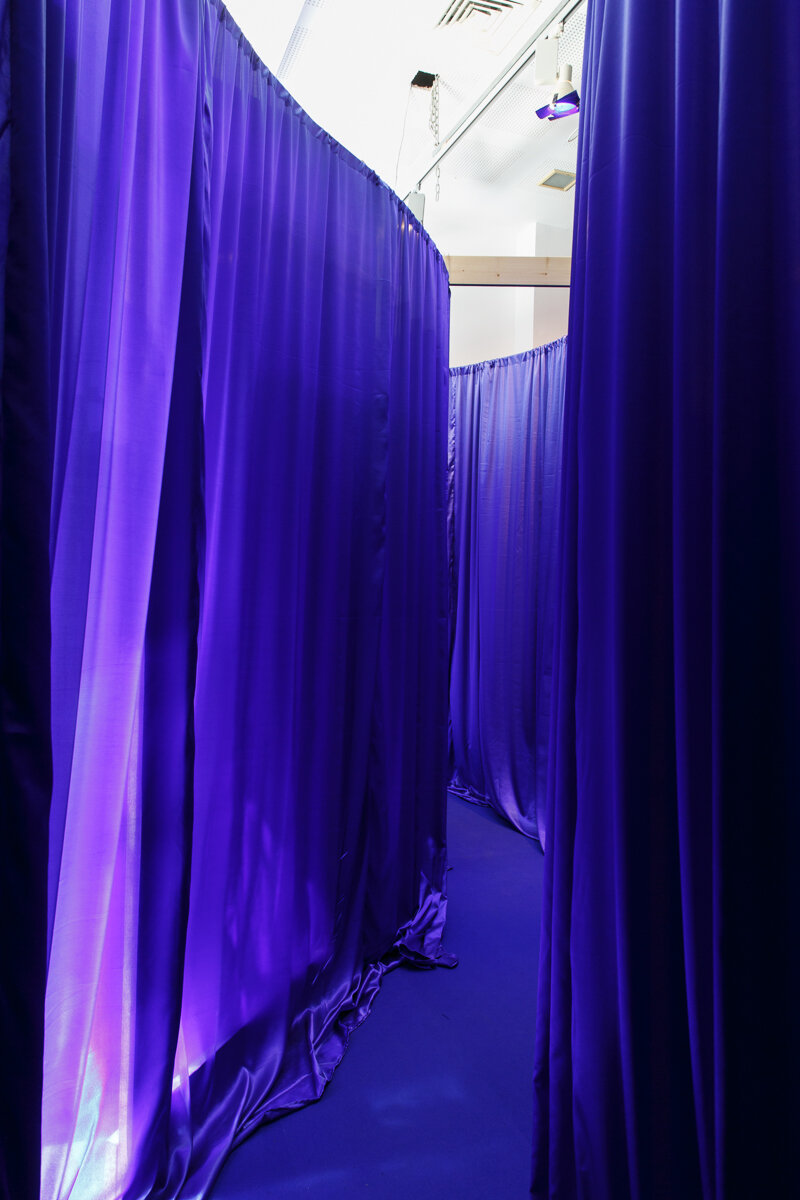
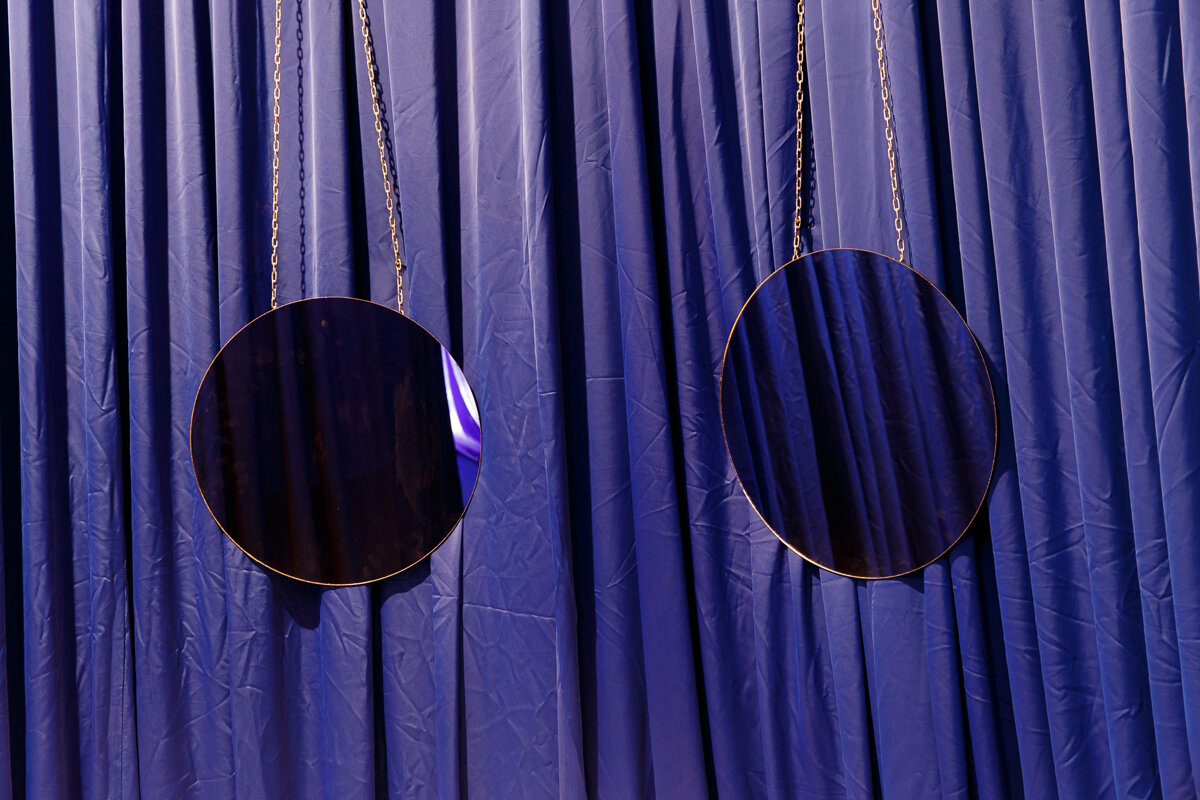
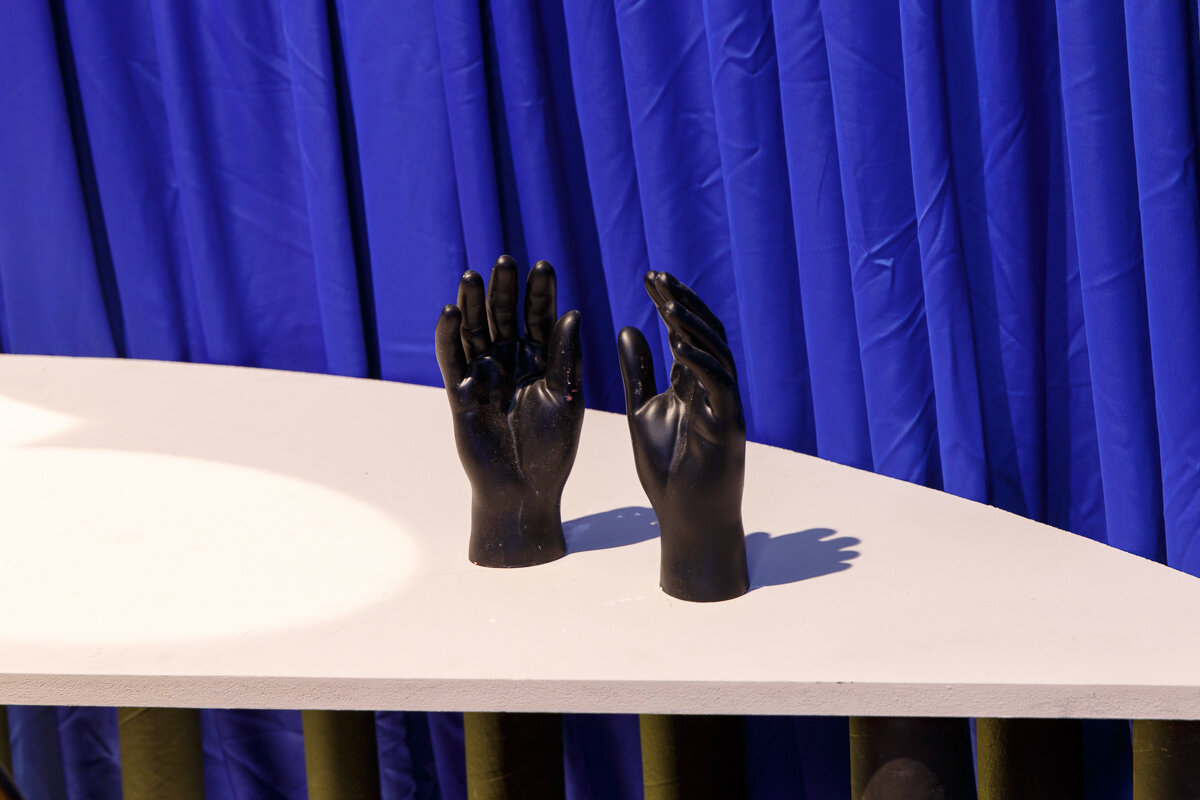




Luminos Screen
The exhibition at Alfred Gallery is a fourth joint project for artists Maya Aruch and Gal Melnick. It is constructed as a "set", which hosts various events and performative collaborations during its period in the gallery space. The events have ceremonial characteristics that maintain a live dialogue between the performers, the participants and the elements of the installation.
Along the central gallery space, a long, serpentine shaped structural element is installed made of a blue curtain, which dictates the visitors' path and redefines the boundaries and shape of the space. Along the runway, sculptural elements are installed, and peepholes in the curtains allows the viewers a peek into what is going on outside the serpentine track. The end of the path leads the viewers to a small, low room, in the center of which is the "Crying Head" sculpture.
Each event that will take place during the exhibition, according to its nature, will leaving its traces in space, thus making Changing Room a dynamic installation, which is constantly changing and reflecting on the nature of a "permanent exhibition".
Previous Maya Aruch and Gal Melnick's collaborations:
- "SHOWTIME", presented as part of the exhibition Wa(h)re Angst, Emma Gallery, Pforzheim, Germany, 2017. Curator: Janusch Tschech
- "Cover Version", presented as part of the exhibition "Sassy Concrete", Romano House, Tel Aviv, 2017. Curator: Hila Cohen Schneiderman
- "Omnivores", presented as part of Student Exchange, Vienna, Austria, 2013
About the artists
Maya Aruch, born in 1988, is engaged in sculpture, drawing and installation. Graduated from the Bezalel Art Department in 2014. Lives and works in Tel Aviv.
Gal Melnick, born in 1988, engaged in sculpture, printmaking and installation. Graduated from the Bezalel Art Department for 2014. Lives and works in Tel Aviv.
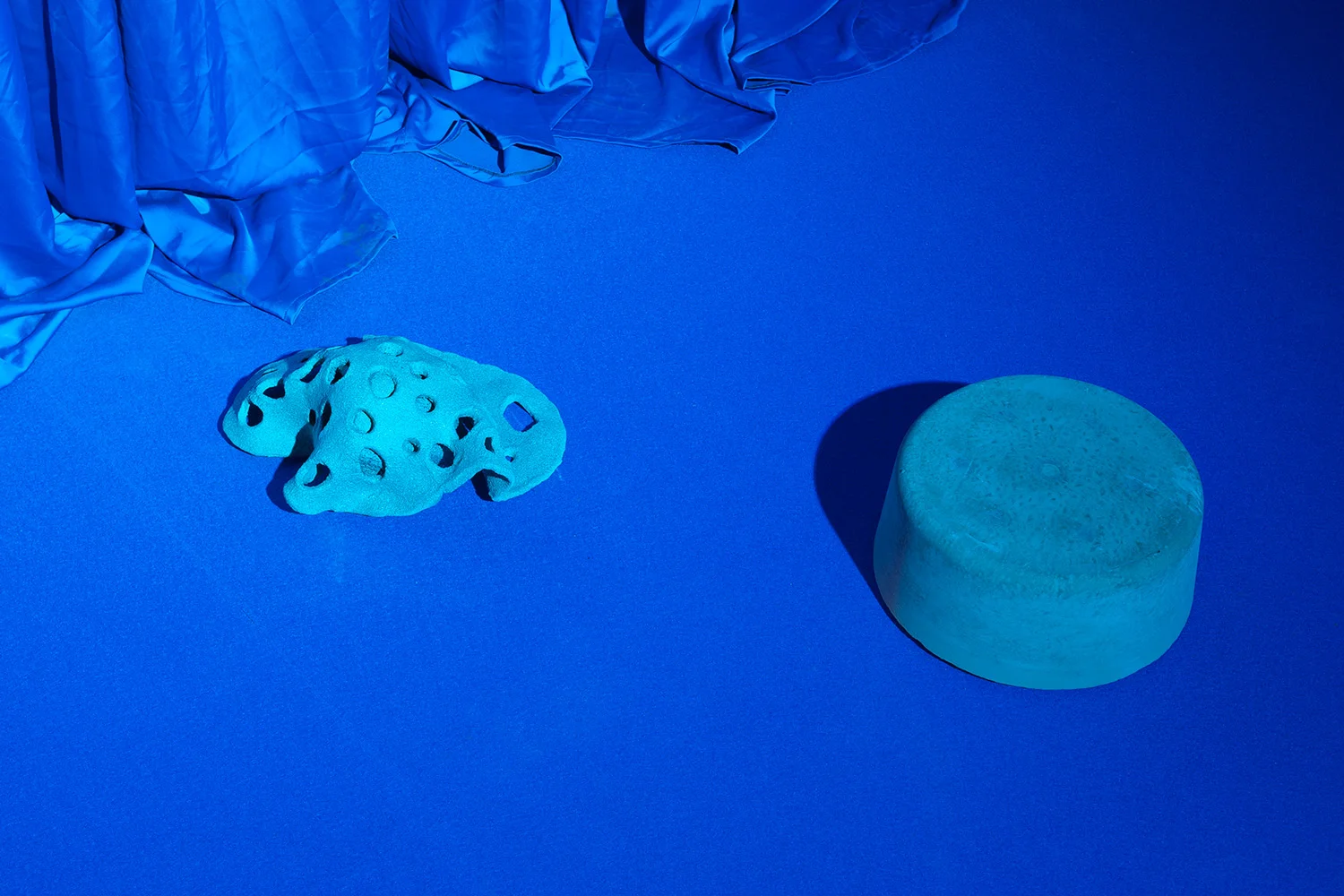
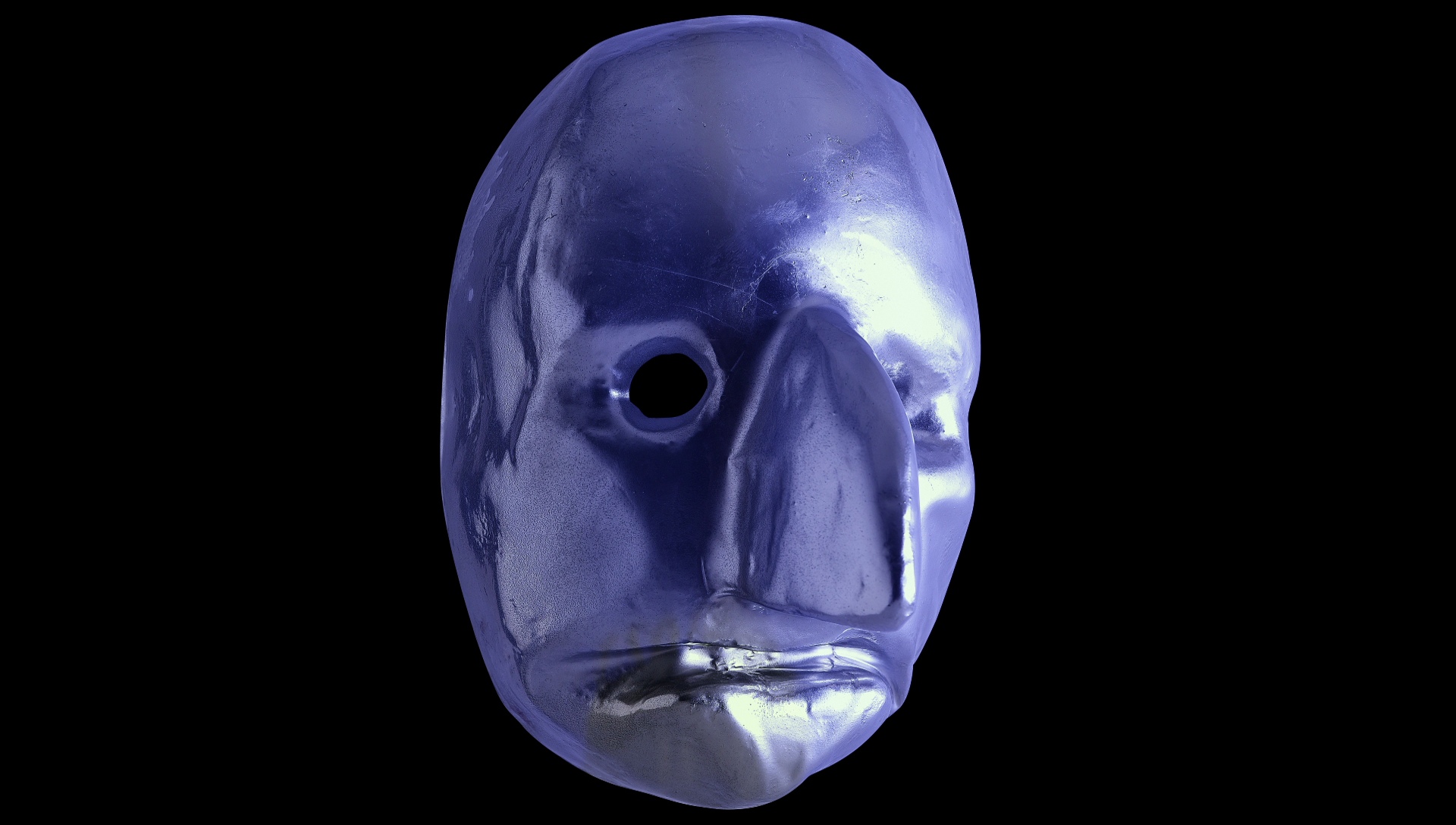
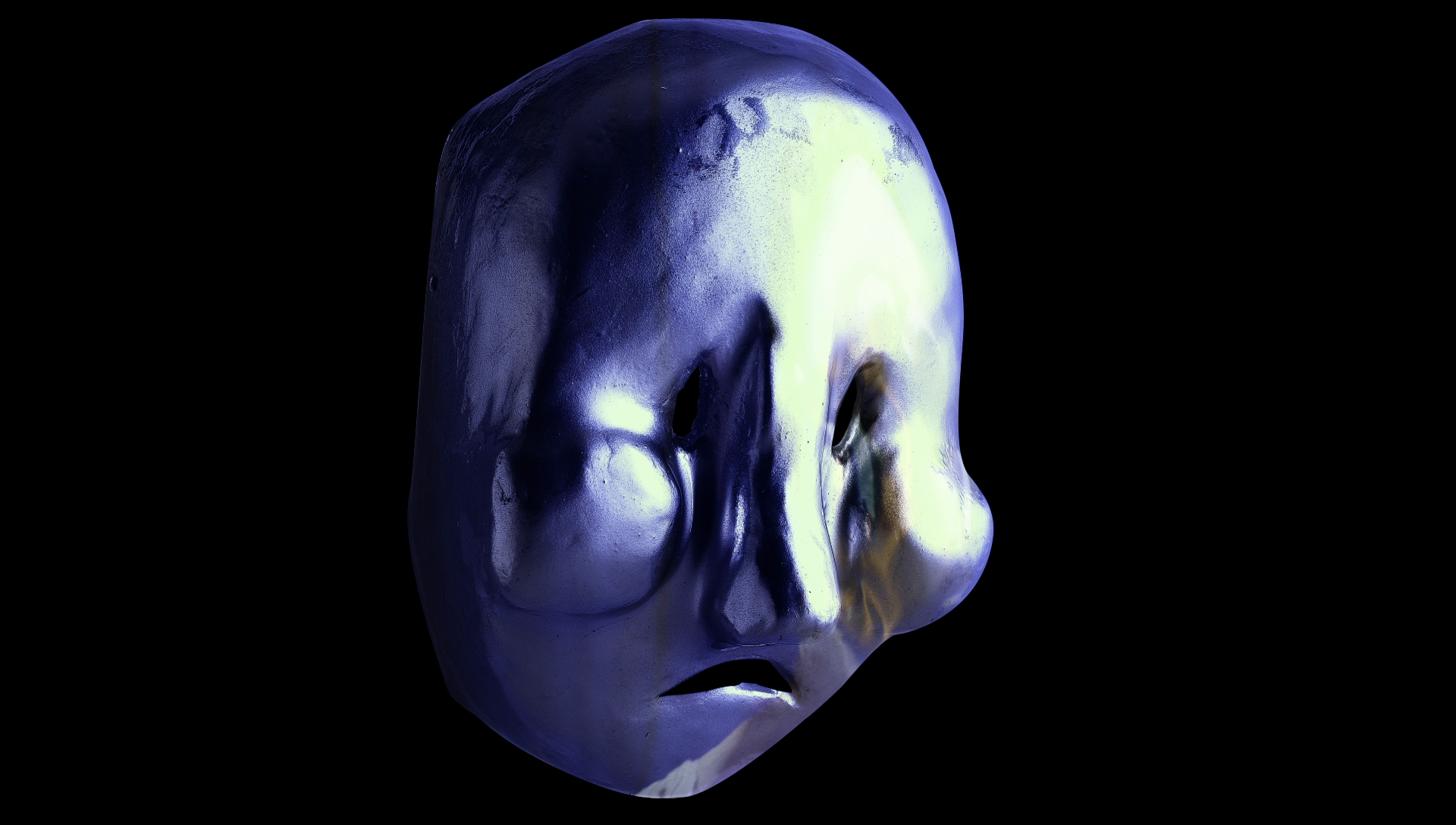
Events during the exhibition:
A Musical Performance during the Opening Event
on Sep 5 at 8 p.m.
Instrumental music performance by
Uri Brauner Kinrot, Adam Scheflan, Ram Gabay, Maya Dunietz
*
Lecture by Oz Rittner, Tuesday, Sep 10 at 8 p.m.
Lecture by Oz Rittner, collection director at the Steinhardt Museum of Natural History, National Center for Biodiversity Research at Tel Aviv University. Rittner is an expert on beetles and butterflies and is engaged with the historical and cultural aspects of natural and human research
Sign up for the lecture by email: Galmelnick@gmail.com
*
HatCut - Hairdressing Salon
You are invited to get a haircut during the exhibition. Hairdresser Tamar Amir, will cut your hair in "The Natural Method" - a haircut on dry hair with an attentive approach to the person and to the nature of her/his hair. Payment by cap method. To set an appointment during the gallery hours, please send a message via Whatsapp: 050-8661082
*
Vocal performance at the closing event, Thursday, Oct 10, at 8 p.m
Tal Ganor, a soprano singer at the Israeli Opera, will perform a vocal performance in an intimate atmosphere
Burn the Bridges Down:
Changing Room is the sixth exhibition in the annual theme of 2019, which is dedicated to exhibitions relating to the concept Burn Your Bridges Down.
The word Bridge describes an architectural functional structure that connects two places, and is commonly used as a metaphor. The command Burn your bridges is used as a strategic plan in situations of siege or persecution.
Bridges symbolize physical and mental territories, changes and transitions between periods and interpersonal relationships. We are accustomed to thinking that the path to growth and progress must be based on creating continuity and bridging gaps. Sometimes, however, the only way to move on, to reinvent ourselves, to rise up like a phoenix from the painful memories, is to sever the relationship irreversibly. To burn the bridges so that we can no longer go back, in order to prevent demons from the past from continuing to persecute us.
In the 2019 exhibition we will examine the concept of burn your bridges down from a variety of aspects: personal, intimate, political, historical, gender and social.

